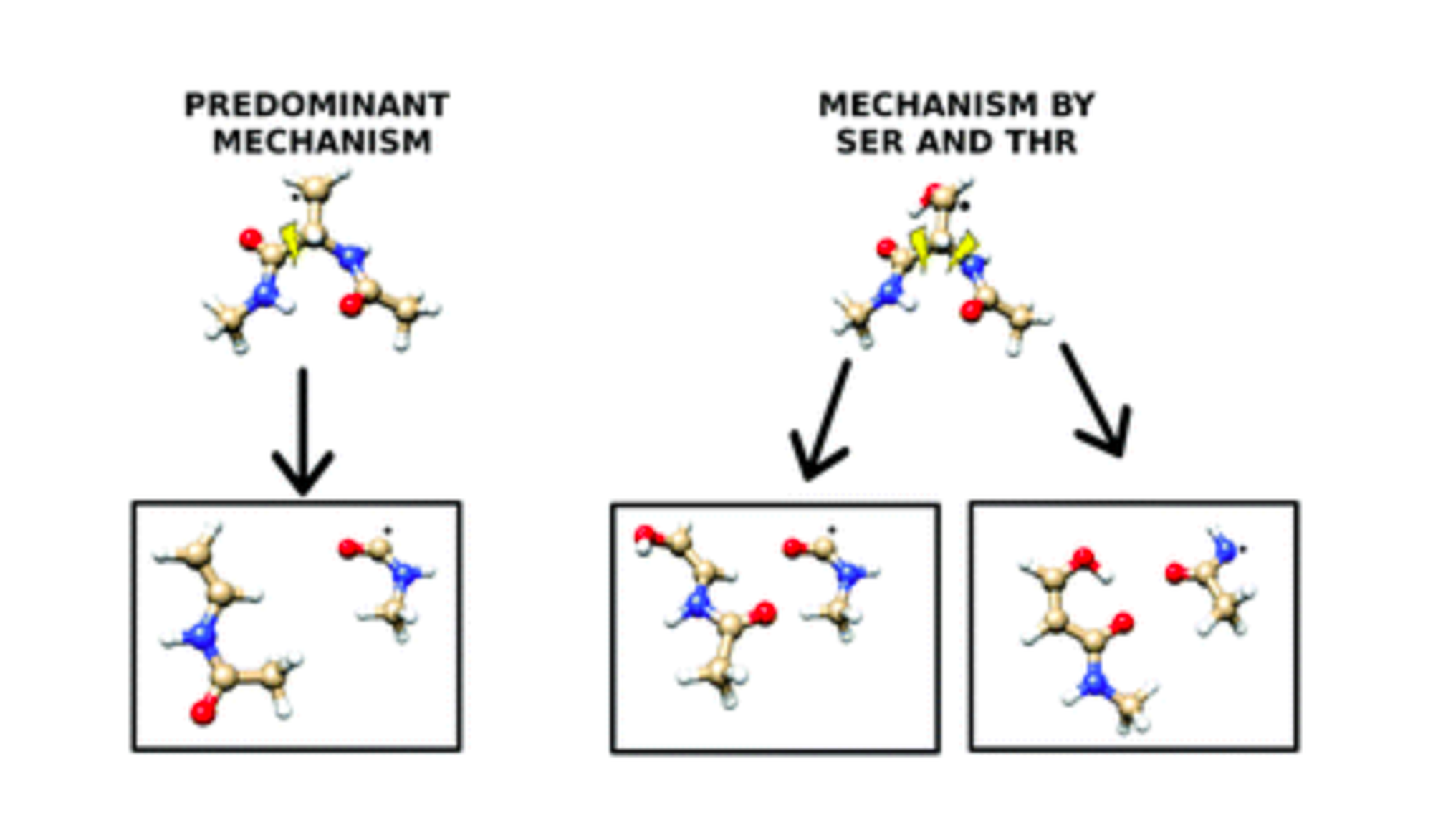Protein damage caused by ROS and RNS species and its prevention by antioxidants

Internship
Type of Project: Theory
Location: Donostia
Supervisors:
Jon M. Matxain
Elixabete Rezabal
Status: closed
The interest in free-radical processes in living systems has increased exponentially during the last decade. The huge complexity of the evolved processes makes necessary the analysis of the problem from a fundamental point of view. Radicals are ubiquitous intermediates in a variety of ordinary biochemical reactions. Some of the radicals that are most abundantly produced in natural biochemical reactions are Reactive Oxygen Species (ROS) such as hydroxyl, hydroperoxyl and superoxide anion, and Reactive Nitrogen Species (RNS), such as nitrogen monoxide and peroxynitrite.
However, due to the overproduction or poor control on these species, caused by a number of biochemical disfunctions, they can cause severe damage to a broad range of macromolecules, such as lipids, DNA and proteins, being the origin of many free-radical mediated pathologies. In particular, protein oxidation causes alterations in the intra- and inter- cellular communications, along with the loss of enzymatic function. Reactive species may interact not only with the polypeptide chains of complex proteins but also with the non-protein metallic part of the protein. The modification of the polypeptide chain may affect peptide bonds as well as side-chains of amino-acid residues, while the non-protein part may be affected as the radicals attack to the metallic part of the protein, both leading to a loss of enzymatic activity, with critical consequences for the cell.
Although the knowledge on the above mentioned processes has increased in last years, there are many aspects that are unclear or poorly understood. For instance, several oxidation products and oxidation mechanisms have been proposed in the literature for the oxidation of side-chains of amino-acid residues and peptide bond cleavage, but in most cases these studies are not conclusive. Protein oxidation is known to be prevented by antioxidants, which are, in addition to enzymes, vitamins, metabolites and some synthetic antioxidants. However, the mechanisms involved in these reactions and the followed metabolic pathways are, in most cases, unclear. The aim of this research project is two-fold. On the one hand, we aim at providing insight into the oxidation mechanisms and the oxidation products that lead to the loss of enzymatic activity, and, on the other hand, we will study the antioxidant prevention by some natural and synthetic antioxidants.
